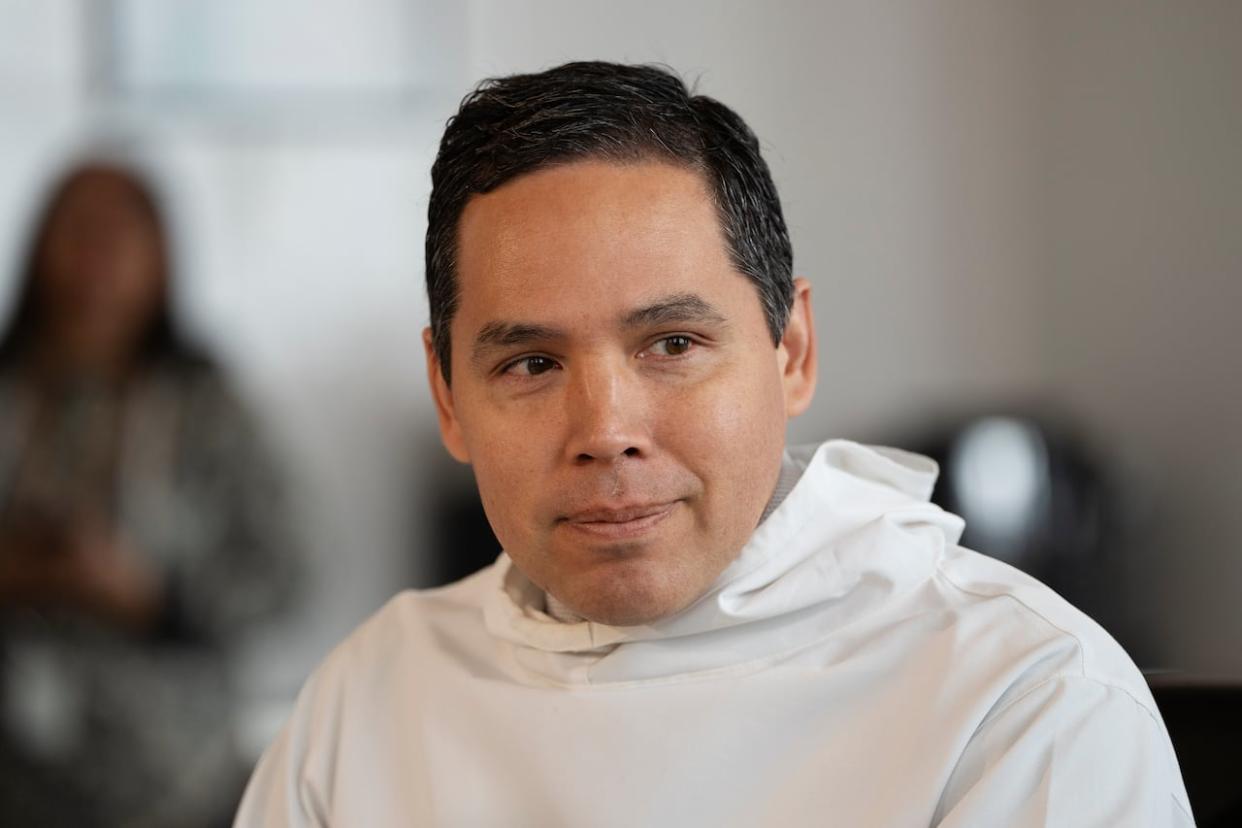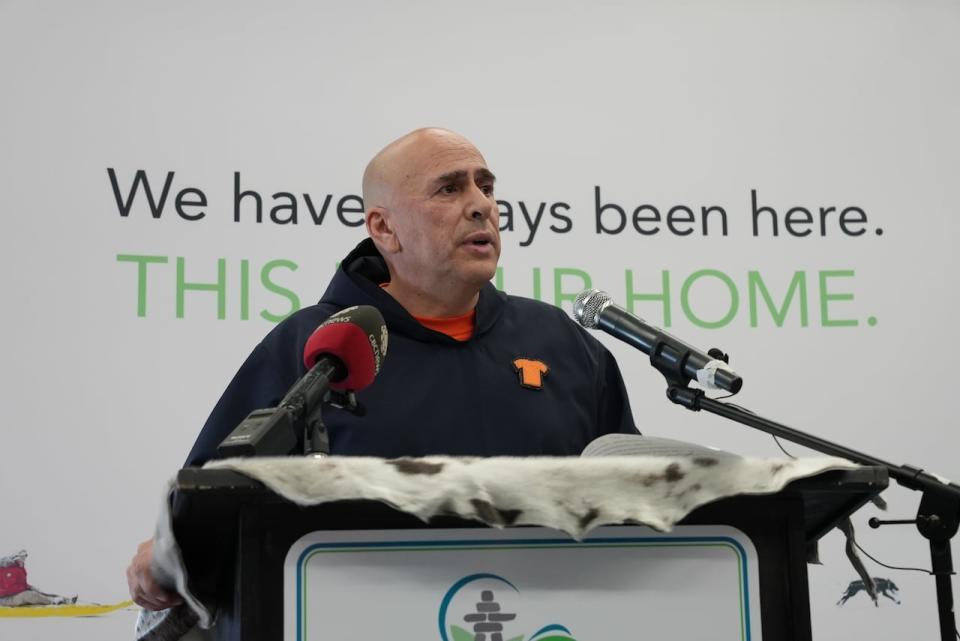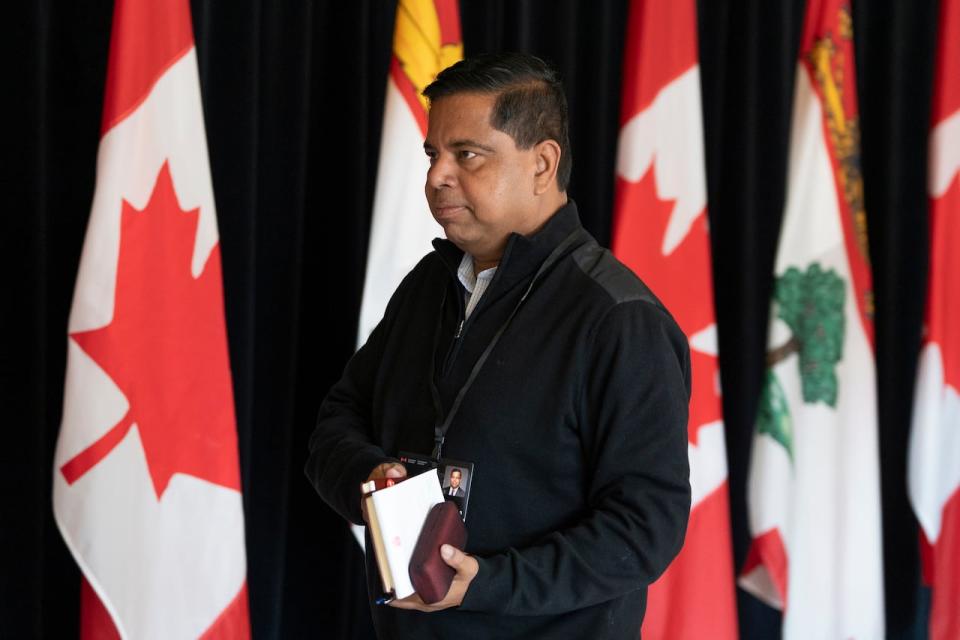Inuit leader warns of Labrador group's 'illegitimate claims' to Inuit identity

The head of the national organization for Inuit in Canada is warning the public about what he calls "illegitimate claims to Inuit rights" being advanced by a self-identified Indigenous group in south and central Labrador.
Ahead of International Inuit Day on Nov. 7, Natan Obed, president of Inuit Tapiriit Kanatami (ITK), released a strongly worded open letter to federal leaders, academic institutions and Canadians drawing attention to the disputed identity assertions of the NunatuKavut community council (NCC).
The council was incorporated in 1986 as the Labrador Métis Association, and its leaders identified publicly as Métis until 2010, when they changed the name to NunatuKavut.
"NCC is a shape-shifting non-Indigenous organization that is part of the alarming trend of non-Indigenous people and groups co-opting Indigenous identities, cultures, and experiences to secure financial resources and rights," Obed's letter reads.
The NCC represents about 6,000 people it maintains have always been Inuit, but chose the term Métis at a time when "Indigenous representativity was constantly in flux," according to its website. The group has asserted Métis identity before, such as in its 1993 brief to the Royal Commission on Aboriginal Peoples (RCAP).

NunatuKavut community council president Todd Russell responded to Natan Obed's open letter, calling it 'defamatory and once again filled with outrageous claims, outright lies and falsehoods.' (Jon Gaudi/CBC)
In response, the NCC says it is disgusted and appalled by the ITK's efforts to erase its history and deny it access to federal supports.
"This latest correspondence from Natan Obed is defamatory and once again filled with outrageous claims, outright lies and falsehoods," NCC president Todd Russell said in a statement posted online.
Obed wrote to Prime Minister Justin Trudeau about the issue in 2021.
Obed's latest letter says "fraudulent claimants often change their stories over time and use aggressive measures to silence those who question them," noting that NCC is not an Inuit rights-holding organization and is not affiliated with the four recognized Inuit treaty organizations.
"Those who falsely align themselves with a recognized Indigenous people to secure resources, rights and status are practising a perverse form of colonial racism that not only harms Inuit by diverting badly needed resources away from our people but may, in certain circumstances, amount to criminal fraud," the letter reads.
"The federal government must stop enabling this morally reprehensible and possibly criminal behaviour."
Russell responded by calling Obed "profoundly ignorant."
"Despite our numerous offers to meet and to have dialogue to share our history, culture and governance, he has not responded or made time for conversation and learning," Russel's statement says. "Yet he continues to expend time and effort spreading harmful misinformation."
Feds warned internally about MOU
Innu Nation, which occupies two federally recognized First Nations communities in Labrador — Sheshatshiu and Natuashish — also disputes the NCC's assertions.
The Innu have applied for judicial review in Federal Court, asking a judge to quash the NCC's 2019 memorandum of understanding with the Canadian government.
According to internal federal documents made public in court, the NCC's 1991 comprehensive land claim asserting Inuit rights and title was rejected.
"Their claim was rejected because it did not meet the current legal tests for Inuit Aboriginal rights and Inuit Aboriginal title," says an internal Crown-Indigenous Relations communications document dated Sept. 5 2019.
"Subsequent submissions by the group in 2003, 2013 and 2017 drew the same conclusions," the document continues, noting that "Canada has never fully addressed the question of whether NunatuKavut might have a valid claim as a Métis group."
Federal officials also urged Carolyn Bennett, the minister of Crown-Indigenous Relations at that time, to hold off signing, warning she would risk setting a precedent with other groups whose status as Indigenous rights-holders "is subject to doubt," according to a secret-stamped August 2019 memo.
While NCC has yet to prove it has constitutionally protected Indigenous rights, Newfoundland and Labrador's Court of Appeal has held the NCC's claims are credible enough to trigger the Crown's duty to consult.
RCAP also concluded "it seems clear that the Métis of Labrador are an Aboriginal people within the meaning of Section 35."
Russell promised to press on in pursuit of formal recognition of the NCC's rights.
Canada urged to abide by own policy
However, Obed's letter urges the Canadian government to rebuff NCC and "other fraudulent organizations" by implementing the Inuit Nunangat Policy, which was co-developed with Inuit leaders and applies to all federal departments throughout the Inuit homeland.
Following the policy would ensure only Inuit treaty organizations and their members are eligible to access federal programs, policies and initiatives intended to benefit Inuit, the letter reads.
Academic and other institutions should follow suit by adopting eligibility policies based on official identity documents provided by these treaty groups, the letter continues. The Nunatsiavut government is the recognized treaty authority in northern Labrador.

Crown-Indigenous Relations Minister Gary Anandasangaree has not taken a position on the dispute, but insists any decision to recognize Indigenous rights is motivated by law and history, not politics (Darren Calabrese/Canadian Press)
In an interview last week, Crown-Indigenous Relations Minister Gary Anandasangaree would not answer directly when asked what he proposes to do in response to the concerns, which were raised at an Oct. 30 meeting between Inuit and federal leaders.
The minister acknowledged the identity issue is deeply concerning for many, but insisted the decision to recognize Indigenous rights is motivated by law and history, not politics.
"This is not something that we as a government take lightly," Anandasangaree said.


